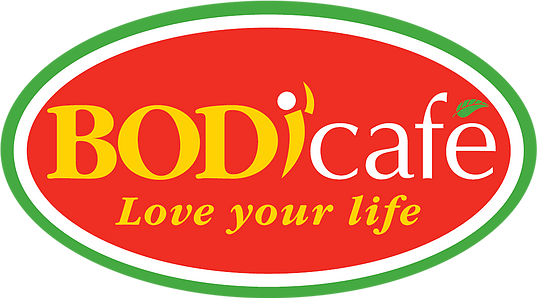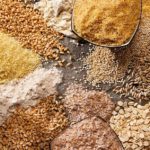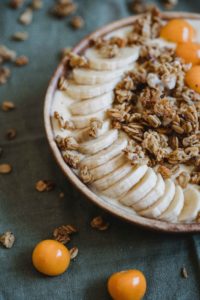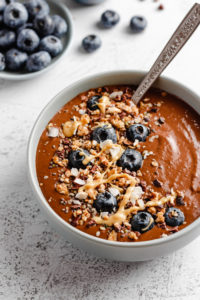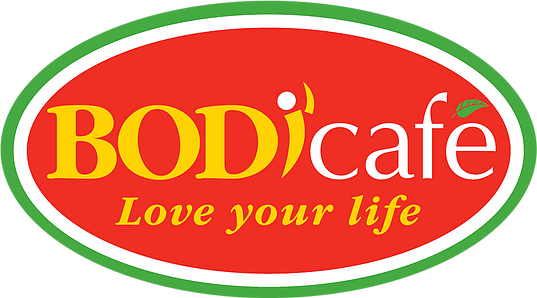Modern food culture has shown growing popularity in a host of unique, alternative grains. In the past, as Westernisation advanced, ancient grains were sidelined to make way for refined grains (such as commercial wheat and maize) to give the mass populace an economically accessible food source – to the great disadvantage of our health. Today, the revolution of ancient grains has allowed them to become more accessible to the everyday consumer. Common supermarkets and grocers now offer a wide variety of whole, ancient grains to choose from. It is not an easy transition from a refined foods diet to a wholefoods diet. But we are here to assist you along the way. The ancient grains ‘comeback’ may offer you and your family a treasure chest of golden health benefits you never anticipated.
What Are They?
Ancient grains are a class of grains that have remained largely unchanged over the years. They have maintained their unique nutrient profiles with little to no GMO interference to change their genetic structure. While whole grains like quinoa, buckwheat and wild rice may have become relatively common to Western society, cultures throughout Africa and the world have used a host of ancient grains for centuries. Grains such as sorghum, millet, and teff are indigenous to most African countries. These grains have adapted to arid climates and grow well in soil that would not otherwise accommodate modern crops. Subsistence farmers have been able to provide for their families and communities in this way for centuries. This is a heritage to be preserved and supported.
Health Benefits of Six Ancient Grains
1. Amaranth
Amaranth is a gluten-free high-fibre and grain, rich in minerals such as iron, calcium, and potassium. The real star of its nutrient profile is the nine grams per cup of plant protein this grain boasts. Amaranth is a pearl-like pseudo-cereal that can be prepared as a breakfast porridge, a savory replacement for white rice, or used in Mediterranean-style salads.
2. Millet
A magnesium-rich grain, millet has an alkalizing effect in the body and may assist to improve heart functionality. Magnesium assists in improving cardiovascular circulation, muscular contraction, and blood vessel dilation. Millet has a short cooking time and is also naturally gluten-free! It can be used to create a delicious and hearty breakfast bake with plant milk, nut butter, seeds, dates, and cranberries.
A breakfast fit for kings that can give your family the right start to the day!
3. Quinoa
Quinoa has fast become one of the most popular ancient grains on the market. Its nutty texture and diverse colouring make it an exciting addition to our pantries. Quinoa is a pseudo-cereal as it does not grow on grass and is in fact closer in nature to seeds than grains. Who knew? This grain is rich in low-glycemic carbohydrates, maintaining stable blood sugar levels and ensuring a gradual release of energy. With a fibre content to rival brown rice, quinoa provides both insoluble and soluble fibre that promotes the growth of gut-friendly bacteria. Resistant starch is essential for balancing the growth of gut bacteria. To dd to its impressive nutrient profile, quinoa is considered a complete protein source consisting of all nine essential amino acids. Quinoa is a good source of several minerals including, iron, zinc, folate, copper (removes heavy metals from the body), and magnesium.
Another awesome vegan and gluten-free protein source!
4. Sorghum
Sorghum is a rich, gluten-free native African grain. It has a wonderful texture, varying in colours that range from white, yellow, red, brown, black, and even purple. Sorghum has a significant nutrient profile. Potassium, magnesium, Vitamin B1,2,5,6, and iron are but a few of the vitamin and mineral compounds sorghum provides. These vitamins and minerals may assist in metabolic and neuron development and facillating bone and heart health. It provides 20% of our daily fibre intake and as much protein as does quinoa.
Sorghum can be eaten milled as a smooth and hearty breakfast porridge to give your family the antioxidant boost it needs for the day. The whole grain can be eaten as a rice replacement, popped or flaked. Sorghum is often malted down to its syrup form as a natural sweetener or an alternative to molasses.
5. Bulgur Wheat
Traditional Middle Eastern cuisine often uses bulgur wheat in a number of dishes. Bulgur wheat is the whole grain kernel of wheat that is then par-boiled and cracked. This whole grain is high in fibre and a particularly good source of manganese, iron, and magnesium. Its fibre content promotes satiety and balanced blood sugar levels which may assist with sustainable weight loss. Bulgur wheat is a quick-cooking, diverse grain that can be used in several dishes.
One of the most common Middle Eastern dishes in which bulgur wheat is used is the tabbouleh salad. This salad consists of plenty of herbs, green veg, tomato, onion, lemon, fresh spices, cucumber, and olive oil.
6. Buckwheat
Despite its name, buckwheat is in fact wheat and gluten-free. Buckwheat is primarily composed of carbohydrates with a low-glycemic index. Blood sugar levels are not easily spiked by this grain. Its mineral composition is impressive. It is a source of a particular plant compound called rutin. Rutin is the primary antioxidant in buckwheat, which may assist to reduce inflammation and elevated blood pressure levels in the body. Buckwheat can be used in homemade trail mixes or as a cereal. Soaked buckwheat can be blended to create a hearty (and heart-healthy) porridge.
Wholesome Diversity
We all know this to be true: To absorb the most nutrients from our food we should eat it in its most natural state. Refined wheat and grains have wreaked havoc on our health for years, much to our own genuine ignorance of the fact. But to know better is to do better. It may seem daunting to venture into unchartered territory but the abundance you will find makes it all worthwhile. The large sum of whole grains are naturally gluten-free for those suffering from celiac disease or gluten sensitivity. BodiCafé offers a grain to suit every palate, from the smooth, earthy texture of sorghum porridge to the nutty lightness of quinoa. Allow ancient grains to give you a new lease on life!
